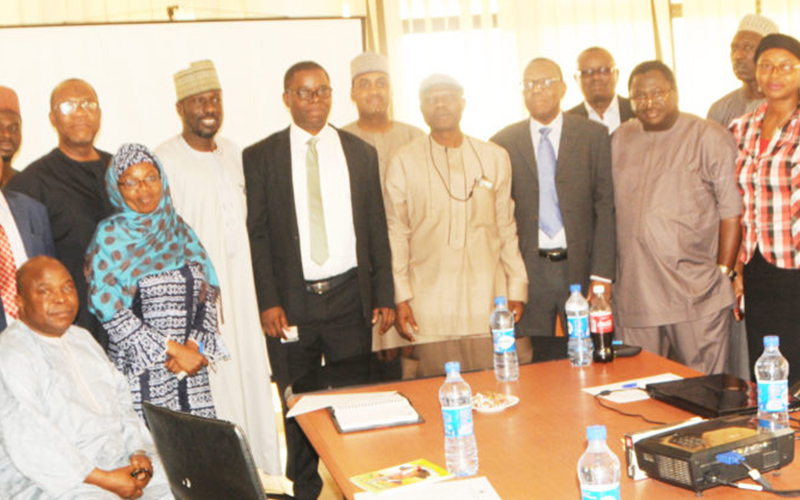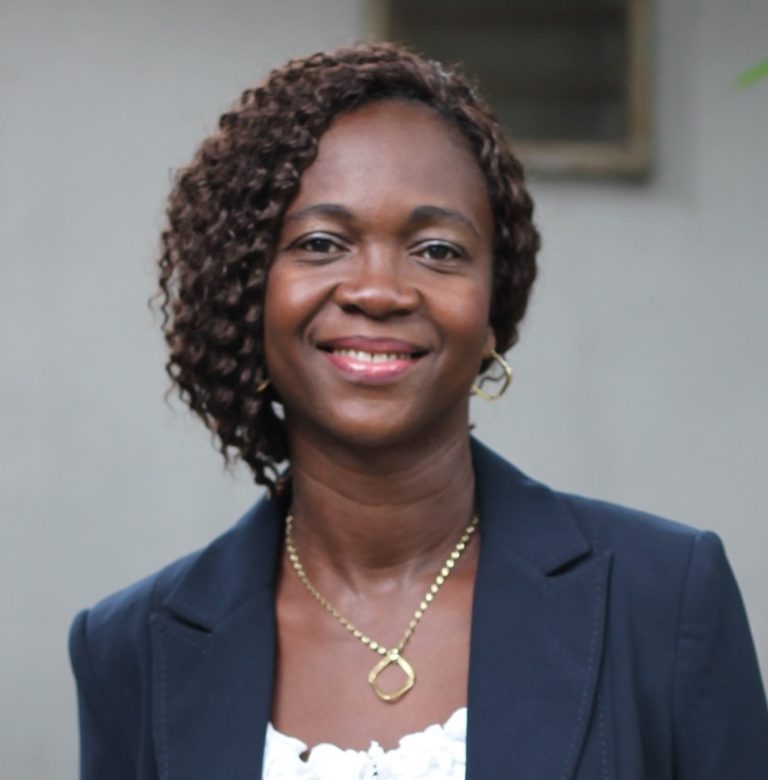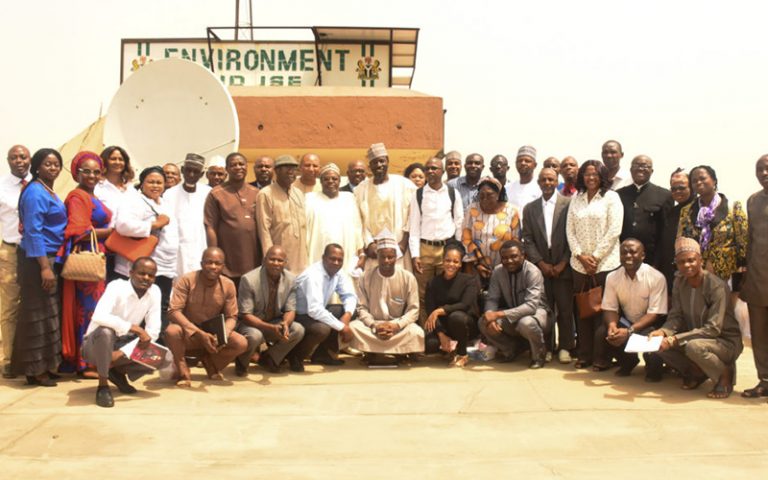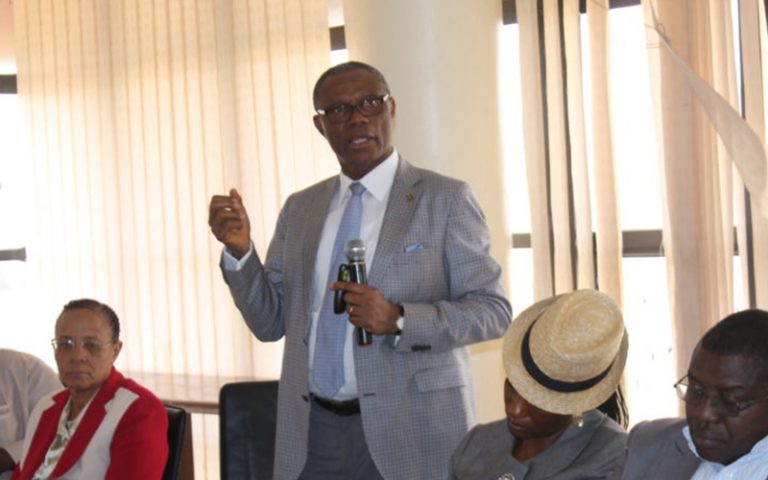The 3rd annual Charlie Wolf Symposium was held 14 February 2018 at the Federal Ministry of Environment Complex (Brown Building) located in the Central Business District, Abuja, Nigeria. Environmental Economist, Ahmed Sanda gave a background of the theme of this years’ symposium (Impact Assessment: A Reflection from Compliance Perspective) and briefly explained the importance of the annual gathering that has been held since 2016 in honour of Charlie Wolf and Charlie’s contributions to the world of impact assessment though IAIA and professional career.
Prof. Bode Gbenle, Chair of the Association of Environmental Impact Assessment of Nigeria (AEIAN) Board of Trustees, gave an overview of the activities of the, noting that it is an Affiliate of the International Association of Impact Assessment (IAIA) and that the association has been the umbrella body of practitioners of environmental impact assessment in Nigeria.

The chairman of the symposium, Dr. Amos Abu, Senior Environmental Specialist (Environment and Natural Resources GEN07) of the World Bank, stressed the need to consistently improve on the quality of Impact Assessment Reports through partnerships, vigilance, and training. He further stressed that climate change, labor, and gender-based issues should be made to compliment the all-important social aspects of impact assessment studies in the country. He also noted that while the World Bank has reviewed its Environmental and Social Impact Assessment guideline, Nigeria is currently reviewing its EIA Act. Dr. Abu drew large cheer when he stated that the World Bank will be willing to partner with Federal Ministry of Environment and consultants on trainings as well as providing other logistical support to same when the need arises. Mr. John Adesanya Alonge, Director of Environmental Assessment, Federal Ministry of Environment, presented an overview of the EIA Act No. 86 of 1992, which is currently undergoing review by stating the successes and the challenges they had to overcome before getting to the current stage. These experiences and the need to make the document all-inclusive and progressive will ensure that a new ACT consider many issues including the ones raised by Dr. Abu. He also revealed that the department will soon publish 14 sectoral guidelines already developed. He rounded off by discussing the issues of conservation, safeguards, cumulative impact assessment and bureaucracy in relation to ESIA writing.

The lead presenter Mr. Abbas Sulieman delivered a lecture on the topic “Journey So far, 30 Years After the Creation of FEPA.” He started with providing a brief biography of Charlie Wolf by speaking of his education, works, passion, travels, and incomparable contribution to the decision-making tool known as Environmental Impact Assessment. Known in some quarters as the father of Social Impact Assessment, Charlie was drafted by UNEP with Professor Robert Thurnbull of Scotland to help Nigeria formulate their EIA Act. He listed many achievements and honors bestowed on Charlie including chieftaincy titles bestowed on him by many communities in Nigeria.
In the second of four segments of his presentation Mr. Suleiman discussed the rise of environmentalism and sustainability by relating the actions of early conservationists, humanists and scholars to the scientific basis to which Impact is understood today. This provided a sound basis to assess the performance of Nigeria in terms of regulating the industrial and manufacturing sectors with a view to achieving sustainable development. He recognized the progressive and self-regulating actions of some sectors particularly the Port operations and the wakefulness of others as well as encouraged the rest to imbibe the same culture.


Fittingly, the speaker ended by providing an assessment of how EIA is viewed and the challenges of thinking it is an all-purpose tool that can fix every problem of humanity. In the same light, he reeled out the opportunities sector by sector as well as traced other challenges of impact assessment generally and locally by elaborately talking about the bureaucracies and politics. After 30 years of impact assessment in Nigeria, he enumerated with some important footnotes the major policy achievements, events, incidences and notable people, and firms that have contributed to the development of impact assessment in Nigeria. This, he capped by providing recommendations on how to improve impacts assessment from a regulators perspective.
The lecture was followed by a question and answer session followed by important announcement on the individual participants’ readiness of travelling to South Africa [for IAIA18].
After these deliberations, two motions were raised by Mr. A. J Alonge: (1) to constitute an executive which shall run AEIAN and (2) to make Ahmed Sanda the president; Ijeoma Vincent-Akpu secretary and have Bello Mahmud, Ibrahim Salau, Lola Okwuosa, Taiwo Odubela, and Adebanji Adkoya as executive members.

The motion was seconded by Abbas Suleiman and ratified by the members. The new president thanked the audience and provided an insight on the need to expand the membership, create partnerships, and structurally improve the image of the Association as well as leverage on the huge expertise and enthusiasm of all members. He also suggested an AEIAN secretariat be established in the FMEnv. with antenna desks in Ministry of Mines and Steels Development, National Environmental Standard and Regulatory Enforcement Agency and E.U project offices to be overseen by nominees from these agencies. While Mrs. Kefasi and Mrs. Pani were respectively nominated by their respective ministries, Mr. Abdulsalam and Mr. Waziri were also put forward to oversee the membership drive from the institution by registering interested members.
A vote of thanks was delivered by Mr. Alonge, during which he thanked all the members for their faith in impact assessment and especially thanked and appreciated Prof. Bode Gbenle and Dr. Ahmed Sanda and Dr. Banji Adekoya.





